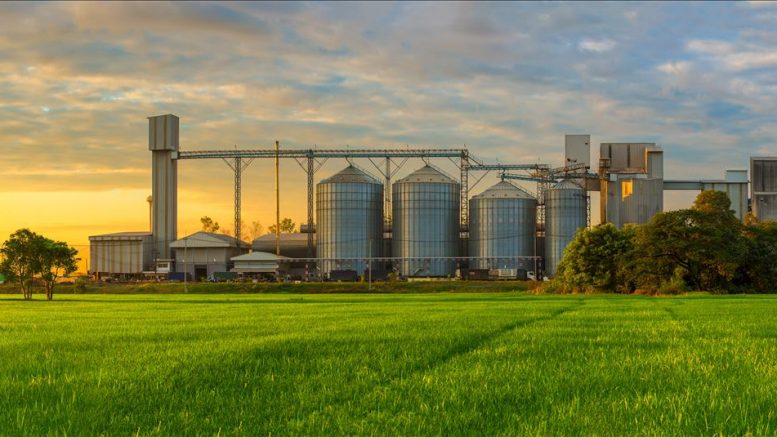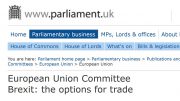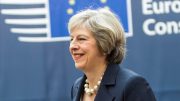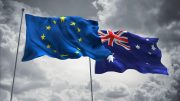Farm lobbies in the EU and the UK are already ringing alarm bells about upcoming talks, reports Geoff Kitney.
Here is a single example of the complexity facing the UK as it tries to separate itself from its 40-year entanglement with the European Union.
This is just a tiny portion of the more than 1,200 treaties and agreements that will need to be renegotiated by the UK to create its own, post-Brexit relationships with the rest of the world.
Under its membership of the EU, Britain is party to every EU trade agreement, required by international law to be approved by the World Trade Organization (WTO).
Included in these agreements are what are known as tariff-rate quotas.
Tariff-rate quotas cover what are regarded as highly politically sensitive products.
These quotas allow imports of defined amounts of sensitive goods at zero or low tariff rates. Outside these quotas, there are very high tariff rates that virtually guarantee that only those goods within the quotas are imported.
Many of the products covered by tariff-rate quotas are agricultural products – such as beef, lamb, live animals, sugar, fruit, cereals and so on.
Negotiations to formalise these provisions in trade agreements are always extremely complicated and contentious and can take many years to be completed and then approved by the WTO.
The EU has about 100 of these provisions in trade agreements with dozens of countries. As a member of the EU, the UK is party to each of these agreements.
Many of the products covered by tariff-rate quotas are agricultural products – such as beef, lamb, live animals, sugar, fruit, cereals and so on.
The Brexit process will require all of these agreements to be renegotiated.
Britain and the EU will have to complete their own negotiations and then register the outcomes through the long approval process at the WTO.
It is a virtual certainly that every partner country to these agreements will seek to use this as an opportunity to gain access for larger volumes of the current quota limited goods.
But already the farm lobbies in the EU and in the UK are ringing alarm bells about these negotiations and are warning of bitter battles ahead to ensure the renegotiations do not allow floods of currently restricted goods from entering Europe and the UK.
As Britain goes through the process of separating itself from the EU and becoming a WTO member in its own right, negotiations to revise existing trade agreements will need to focus on dividing the share of existing tariff-rate quota-free goods that should be included in the EU’s agreements and in the UK’s separate agreements.
For example, the UK might now be taking 10 per cent of the quota allowed under an existing agreement. The EU would almost certainty insist that in its new, separate agreement the UK take that 10 per cent, so preserving the status quo.
This means that the whole complicated process will have to be conducted in tandem – the EU and the UK negotiating with the third party in the same negotiations but for their separate interests.
If there is a disagreement between the EU and the UK about what their different shares of a quota in fact are, and then there is an attempt by the third-party country to use the opportunity to get greater access to the EU and UK markets, the negotiations could become labyrinths from which their negotiations might take years to emerge.
One big risk for the UK is that, with a new customs border created between the UK and the EU, businesses which currently use English-speaking Britain to access the European market will conclude that the cost of getting their goods across two borders to get to the European market (the UK first and then the EU) is prohibitive and will decide they are much better off to opt for the much larger European market than for the UK.
The cost to the UK in lost two-way trade could be extremely high.

See also: An election result that has done Britain no favours
Headline image: Credit: FUN FUN PHOTO/Shutterstock




